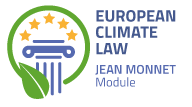Climate Displacement: A Reality
With increasing frequency and intensity, climate change and environmental degradation are forcing people to leave their homes in search of sustainable environments where they can lead prosperous lives. In 2023, there were nearly 26.5 million internal displacements due to situations such as drought, rising sea levels, and more—displacements that are multiplying both within and beyond the borders of affected countries. This program addresses this issue and examines how the government is responding to the challenge of welcoming people affected by these migratory movements.
Broadcast CANALUNED: May 23, 2025
Broadcast RNE: May 23, 2025

